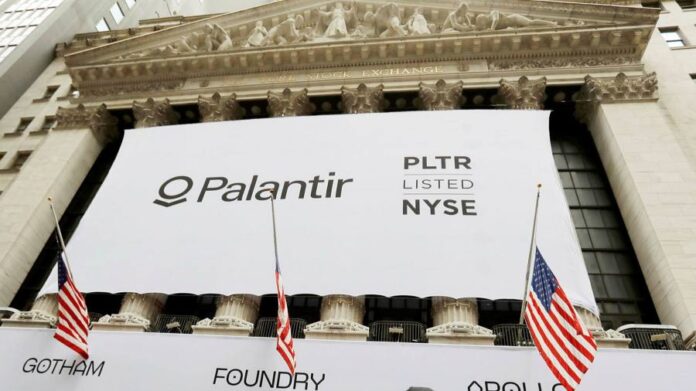Palantir, the data analytics company known for its work for the US defence and national security establishment, beat Wall Street forecasts with its first quarterly earnings since becoming a public company and raised its revenue guidance for the rest of the year.
The company’s revenue growth accelerated to almost 50 per cent in the first nine months of this year, double the rate of 2019, thanks to new contracts with the US army following a successful court battle to gain more access to military spending.
Palantir’s shares rose 1.4 per cent in after-market trading on Thursday, continuing their strong gains in recent days.
The shares had risen more than 40 per cent since the US election last week, despite worries in some quarters that its heavy dependence on defence spending and close ties to the Republican administration would hurt Palantir in the event of a Democratic victory.
On Thursday the company said it had reduced its dependence on a small number of big customers — one of Wall Street’s main concerns about Palantir — with the proportion of its revenue from the 20 biggest customers falling to 61 per cent so far this year, from 69 per cent in the same period in 2019.
For the three months to the end of September, Palantir’s revenue climbed 52 per cent, to $289.4m. It reported a net loss of $861m, or 94 cents a share, $847m of which was due to employee stock expenses following its direct listing in September.
Adjusting for the compensation costs and charges associated with the listing, it reported a profit of $73m, or about 8 cents a share, compared to a loss of $92m the year before. Wall Street had been expecting adjusted earnings per share of 2 cents, with revenue of $279m.
The company’s contribution margin, which the company claims is the best measure of its underlying profitability, rose to 51 per cent in the quarter.
This margin — based on gross profits minus sales and marketing costs, with stock-based compensation costs added back in — had already jumped to 48 per cent in the first half of the year, from 21 per cent in all of 2019, largely as a result of lower sales and marketing costs.
Palantir has said this reflected a change in its business model, as it faced fewer up-front costs with new contracts, though it had also benefited from lower travel costs resulting from the pandemic.











